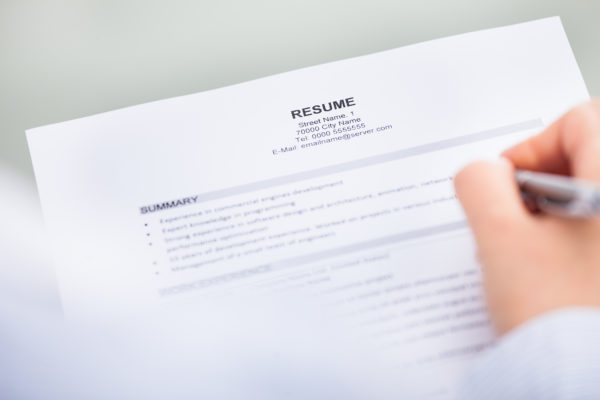The job interview is the most important aspect of your search for a new career opportunity. The way you interview will determine whether you get a job offer. From the moment you walk in, the employer will begin evaluating you on a variety of levels, such as your appearance and the way you express yourself. If you are prepared, you will project a positive, professional image that will give you a competitive advantage. Follow these suggestions to be your most effective in face-to-face meetings with potential employers.
Smile. Be positive and enthusiastic. Get there early. The outcome of many interviews is decided during the first 10 seconds. Greet the employer with a firm handshake, eye contact and a smile. Project an enthusiastic, professional image right from the start. Characteristics that contribute to a professional image are: business-like (appropriate) attire, self-confidence, maturity, a sense of humour, warmth and prompt, concise answers to questions. Arriving early makes a good impression that shows appreciation for the employer’s time and allows you ample time to complete the required paperwork.
Explain how your experience and qualifications will help you do the job. Your common sense and your pre-interview research preparation will tell you how your background and experience fit the employer’s needs. Include specific factors that qualify you for this position. Use examples of special achievements that will help the employer picture you successfully handling the job.
A positive attitude helps. A major factor in many hiring decisions is whether the employer feels comfortable with the applicant. To develop a good rapport speak very clearly, listen closely and show interest. Do not interrupt the employer. Body language is important, too. When the employer says something that requires an answer, comment, smile or nod. Sit up straight in your chair, lean forward slightly and maintain eye contact.
Answer questions by speaking in terms of the position. The employer is looking for someone who will be an asset to the company, not why you need a job. Emphasise what you can do for the company. Some employers ask very generic questions such as “tell me about yourself.” Instead of talking about your childhood, family or personal ambitions, mention specific accomplishments that show your abilities and determination to succeed in this job.
If you want the job, ask for it. Many employers feel that a desire for the position is just as important as the ability to do the job. A very effective interviewing technique is to simply ask for the job. One way to do this is to ask the employer, do you think I qualify for the job?” If the answer is yes say, “When do you want me to start?”
Discuss salary only after the employer mentions a figure. Salary is not generally discussed during the first interview. However, the employer may ask how much money you are looking for. Respond by turning the question back to him by saying, “I’m very interested in the position and I’d like to earn as much money as I’m qualified to earn. How much money would you offer to someone with my qualifications?” If the employer makes a firm offer and you want the job, accept it on the spot. If you have some doubts or are undecided, ask for a day to think it over. Never refuse an offer of employment until you have had time to think about it (and discuss it with your family and recruiter).
Ask meaningful questions about the position and be concise. Many employers evaluate applicants by the questions they ask. Employers like specific questions about the nature of the job, the company’s plans & goals and the abilities considered most important for the position.


